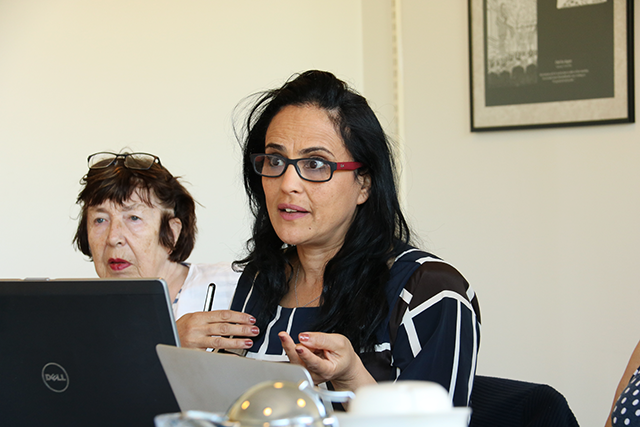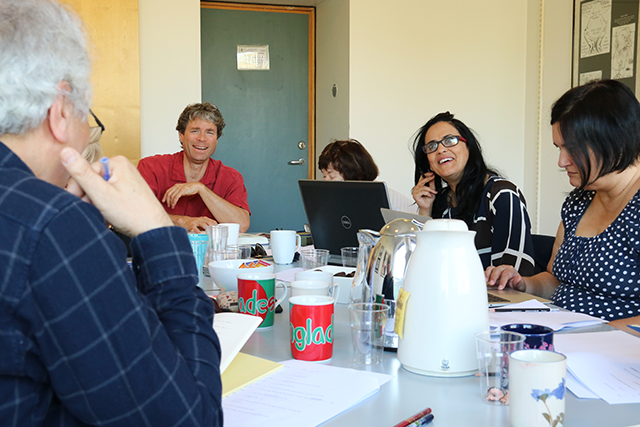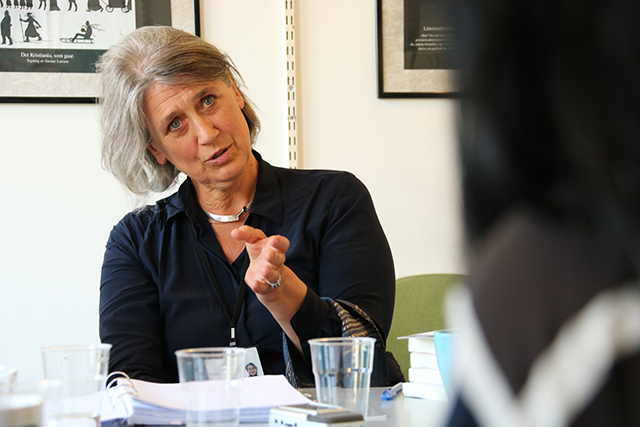After William Shakespeare, Henrik Ibsen’s plays are the most frequently performed on a global scale.
However, when being prepared for international performances, these plays have often been subject to a long chain of translations. In China, for example, Ibsen’s plays were initially introduced as translations from Japanese manuscripts, which in turn were based on German translations.
“Most people think that Ibsen is Ibsen. But when his texts are translations of other translations, the linguistic nuances are often lost,” explains translator and project initiator, Ellinor Kolstad.
“This has given rise to several serious errors. In The Wild Duck, for example, when the man says: ‘Rekk meg fløyten!’ This has been translated as ‘Hand me the cream’, i.e. the Norwegian word ‘fløyten’ (whistle) has been mistaken for ‘fløten’ (cream). In context, this is very peculiar and must have caused a good deal of confusion as to what Ibsen meant,” says Ellinor Kolstad with a smile.

12 plays in eight languages
Ellinor and eight translators work together around a long table in a meeting room at the University of Oslo. They have been working together over the past ten years to give the world a more precise understanding of Ibsen’s works.
They have translated all Ibsen's 12 social dramas into eight different languages: Spanish, Russian, Chinese, Hindi, Arabic, Egyptian, Japanese and Farsi. Project manager is Frode Helland at the Centre for Ibsen Studies.
“What’s unique about this project is how we’ve been working,” says Frode Helland, nodding towards the translators seated around the table.
“Working as a translator is often a lonely job where you spend a lot of time working alone. On this project, however, we’ve held a meeting for each play and discussed the details,” he continues.
Discussing profanities
Frode Helland believes the regular meetings to discuss the different translations have been beneficial.
“When we discuss issues, it forces us to study the texts in even more detail and we find things we thought we understood but discover are not as clear as we imagined. We have also found that there are different challenges involved in translating into different languages.”
One problem is how to translate the profanities in Ibsen’s plays.
“In many languages, profanities are based on sexual life. In Ibsen’s Norwegian plays, however, the profanities are mainly related to religion. We’ve also had similar discussions about manner of address. In Japanese, for example, you have to take into account hierarchy much more than in Norwegian,” explains Frode Helland.

Substantial funding from the Norwegian Ministry of Foreign Affairs
The Ministry of Foreign Affairs has supported the project with more than NOK 8 million.
"This is a significant amount and it shows how important the Ministry believes Ibsen and this translation work to be," says senior consultant at the Ministry, Signe Ihlen Tønsberg.
“The whole world knows that Ibsen is Norwegian, and he is our greatest ambassador. Norway has a responsibility for ensuring correct and accurate translation of Ibsen’s plays so that they are presented according to his intentions as a playwright. It is therefore very important to make sure that all translations are based on his original texts,” confirms Signe Ihlen Tønsberg.
“The project has also attracted a great deal of interest from abroad, and has resulted in seminars, media reports and lectures in several countries where translations have been used on stage, from Japan and China, to India and Iran, Russia, Mexico and Cuba. The project will also be part of the Norwegian contribution to the Frankfurter Buchmesse book fair in 2019, when Norway is the Guest of Honour,” confirms Frode Helland.

Moving on to Peer Gynt?
The project translators are attending their last meeting at the University of Oslo, after ten years of work. But it may not be that long until the Ibsen translators meet again.
“It’s the tenth anniversary now and we’ve finished translating the 12 social dramas. We've talked about working on Brand and Peer Gynt as well, but first we have to concentrate on getting these books published internationally,” concludes Frode Helland with a smile.
